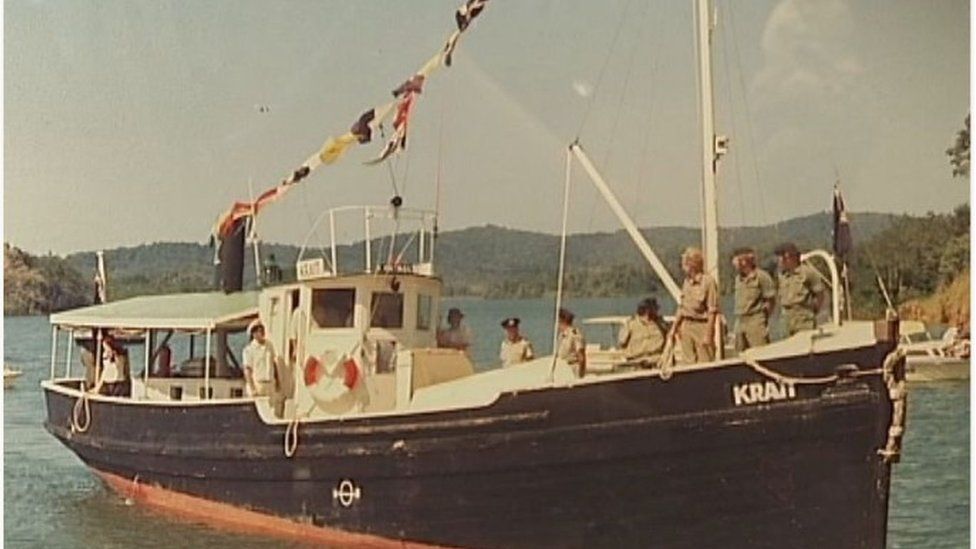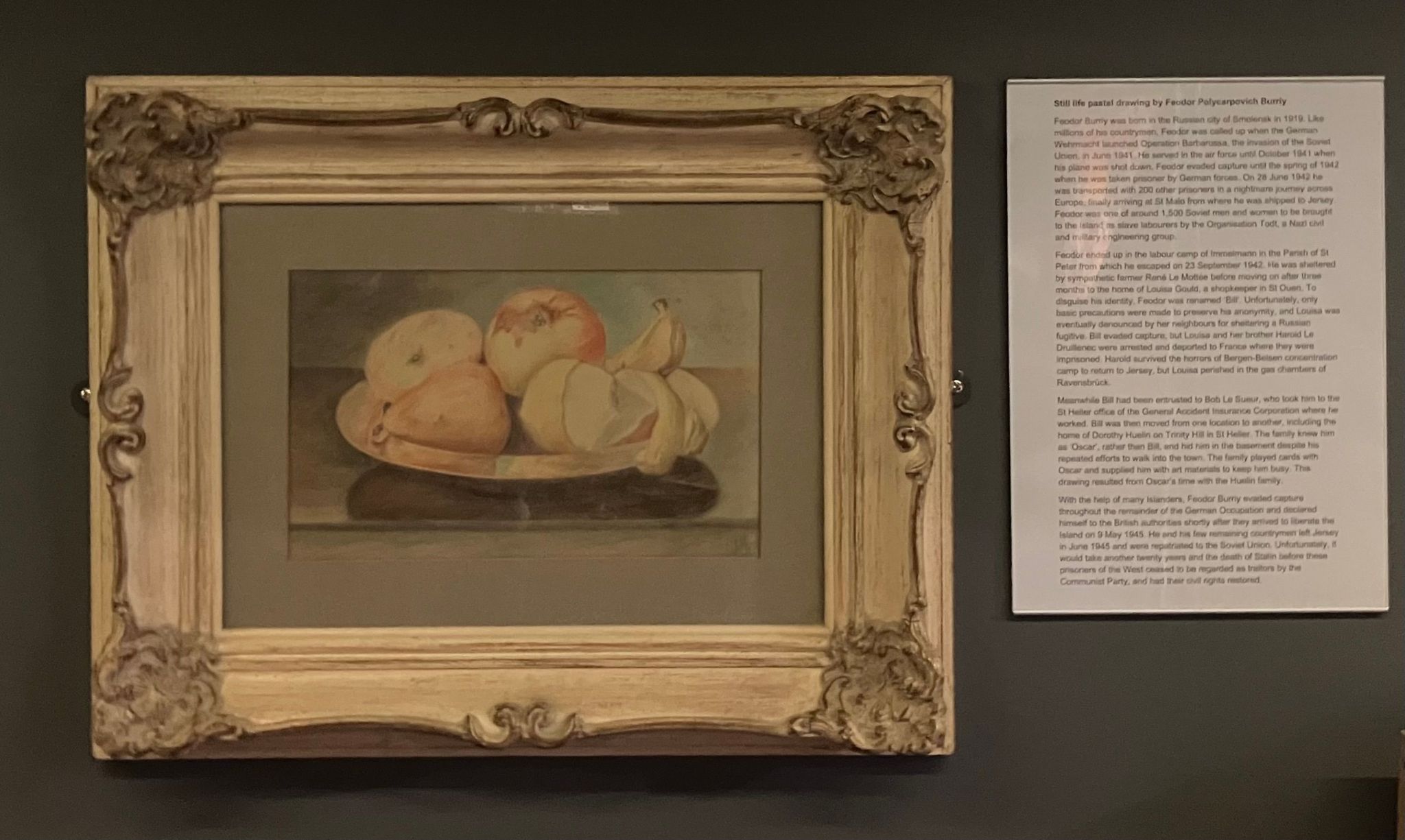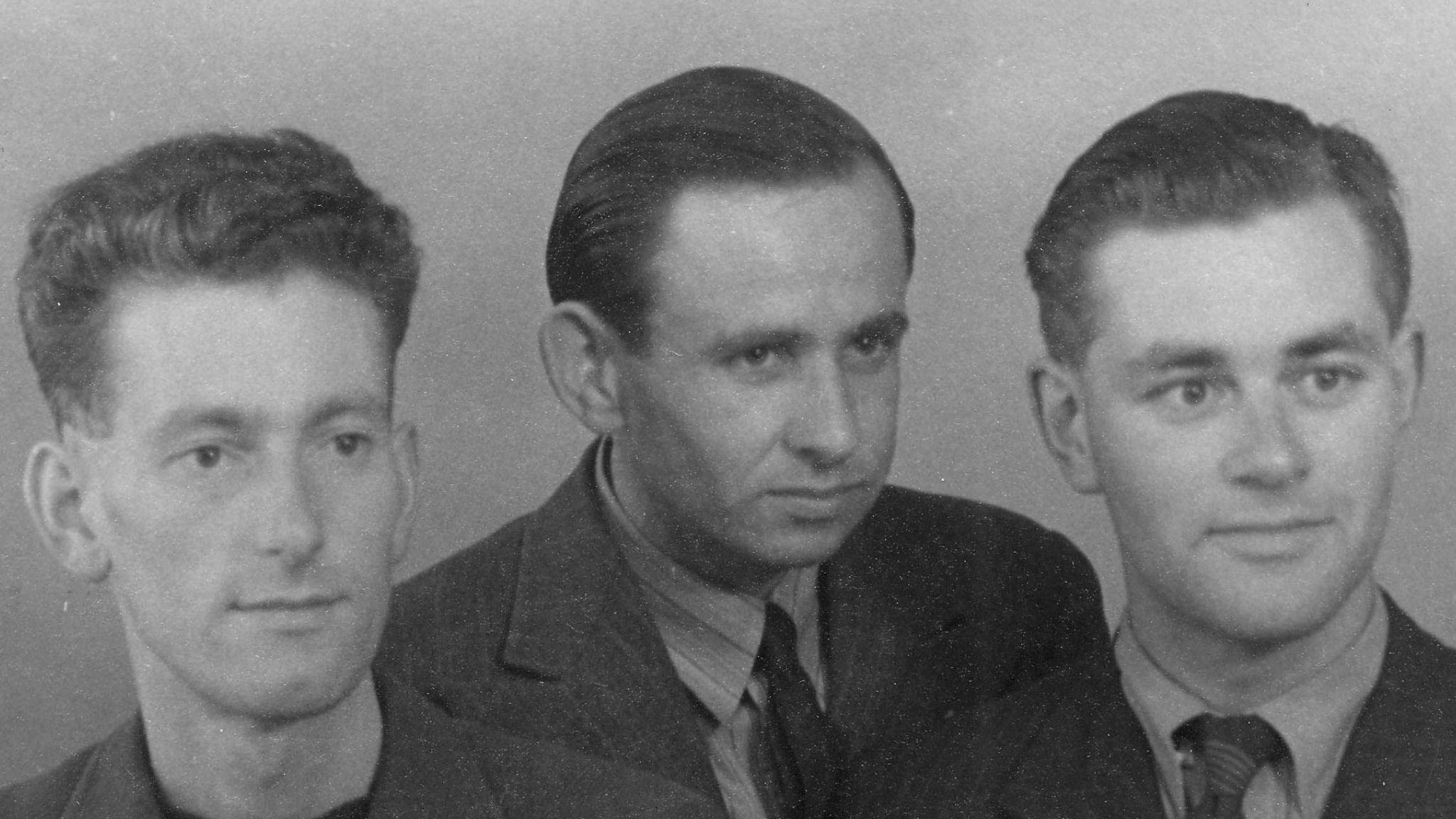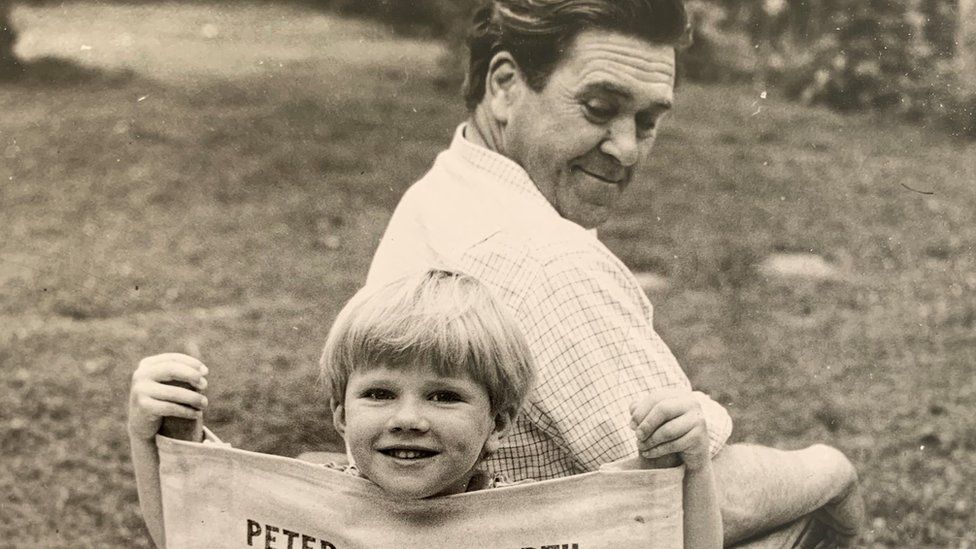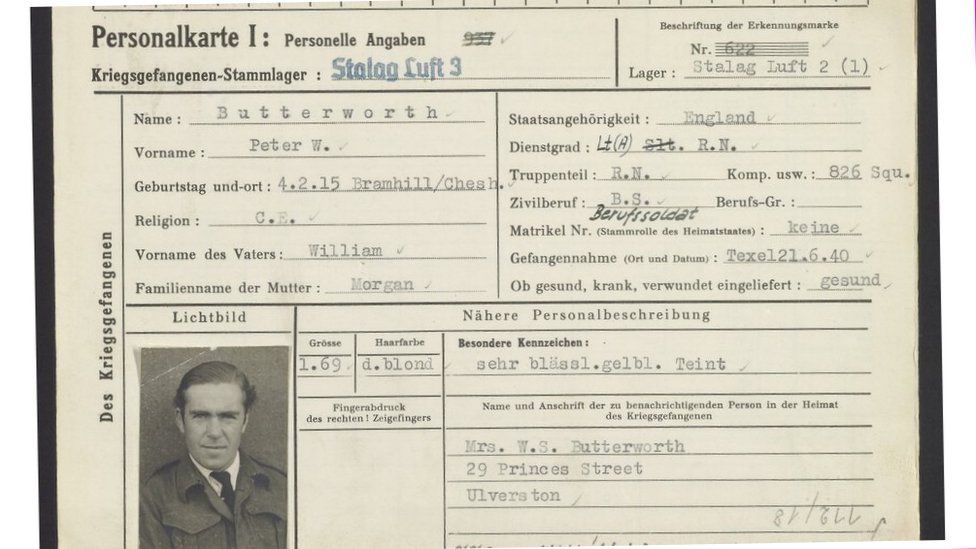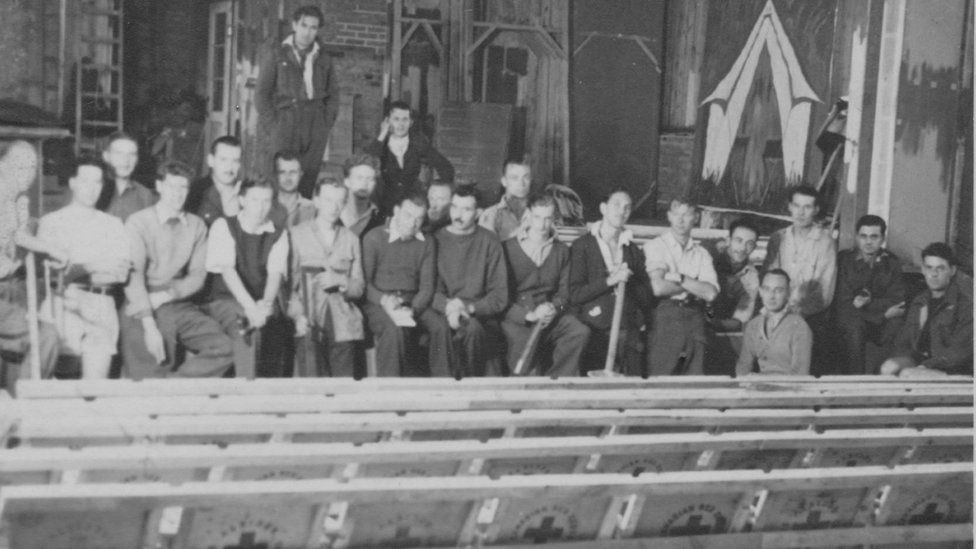Carry On films: The star who helped World War II prisoners escape
Peter Butterworth and his son, Tyler, who knew nothing about his father's war history when he was younger
The Great Escape and The Wooden Horse are two classic British World War II escape films, but what is perhaps less well known is that one of the team involved in both of the escapes that inspired them would go on to become a star of the Carry On movies.
Now, 80 years on, Peter Butterworth's recently discovered German prison identity card is going on display as part of an exhibition telling the story of his life as a prisoner of war.
Butterworth served in the Royal Navy Fleet Air Arm during the war but was shot down in 1940, spending the rest of it as a prisoner of war.
Butterworth, who appeared in 16 Carry On films, helped hide the sand for the escape tunnels featured in the Great Escape and was on the organising committee for the tunnels featured in The Wooden Horse, but it has taken decades for the full story to emerge.
It was his wartime role - working alongside Carry On screenwriter Talbot Rothwell whose plane was also shot down - that helped birth the Carry On humour Butterworth later became famous for.
A cache of prisoner of war documents recently released from a German archive is now going on display at the National Archives in London, which adds new detail to the gradually unfolding story.
The documents arrived from Germany and have been catalogued by a team of volunteers.
For his son Tyler Butterworth, it has been a revelation.
"They keep declassifying things and more seems to bubble up. It's remarkable."
Peter Butterworth was an officer and a code writer
In Carry on Camping, Peter Butterworth played the avaricious campsite owner, Josh Fiddler. In Carry On Up The Khyber, he was the libidinous preacher, Brother Belcher, and in Carry on Don't Lose Your Head, he was Citizen Bidet.
However, in Stalag Luft 3, he was an officer and code writer in MI9, the military intelligence agency responsible for organising escapes from prison camps. It was a mystery to even his own son until long after his death in 1979.
"He did suffer from what we now call post-traumatic stress disorder (PTSD). He never said this to my sister and I, but my mother (the impressionist Janet Brown) told me about things that happened, especially right at the start of their marriage, after the war, where he'd suddenly leap out of bed at night and throw himself on the floor and start hiding. She had to barricade the bedroom door because the staircase was outside."
Peter Butterworth (standing at the back) with the theatre company at Stalag Luft 3
In the escape immortalised in the classic film The Great Escape, Butterworth helped hide the soil from the tunnels in the camp theatre. Inmates would be encouraged to smoke pipes near where the soil was stored to mask the smell.
In the Wooden Horse escape, in which a tunnel was dug underneath a vaulting horse, he was one of the organising committee. When the story was adapted in 1950 for the big screen, he auditioned for a role but was turned down for not looking sufficiently like a prisoner.
Carry On beginnings
Alongside him in Stalag Luft 3 was another prisoner, Talbot Rothwell, who would go on to write many of the best Carry On films. He and Rothwell convinced the camp commandant to allow them to build a theatre, with the sounds from the performances helping drown out the noise of digging the tunnels.
"It's where the (Carry On) humour kind of had its start, in this place surrounded by watchtowers and guard dogs," Tyler Butterworth explains.
"They worked out what made guys laugh. And that was the funny thing, he played these bumbling characters, always getting things wrong.
And there's this complete flip side of this man that was totally focused writing code, working with his friends who were tunnelling on the other side of the compound."
However, all of this was never discussed within his family and it was only years later that the younger Butterworth began to understand some of his father's actions.
"He had all this going on in his mind in his life. My mother told me that when they first bought the house that we grew up in, dad would religiously put on a dressing gown and walk around the garden in the morning, every morning, because he could, because there (in the camp) he couldn't. And those are the sort of things he brought back. But I didn't know about this until after he was dead."
As the bewildered Brother Belcher in the shell-torn dining room scene in Carry On Up the Khyber proves, Peter Butterworth was a marvellous comic actor. However, given that he escaped from one camp near Frankfurt and helped two of the most celebrated escapes in World War Two, we should be perhaps remembering him for more than just Carry On.
The Great Escapes: Remarkable Second World War Captives is on at the National Archives in London from 2 February until 21 July.
https://www.bbc.co.uk/news/entertainment-arts-68209738




